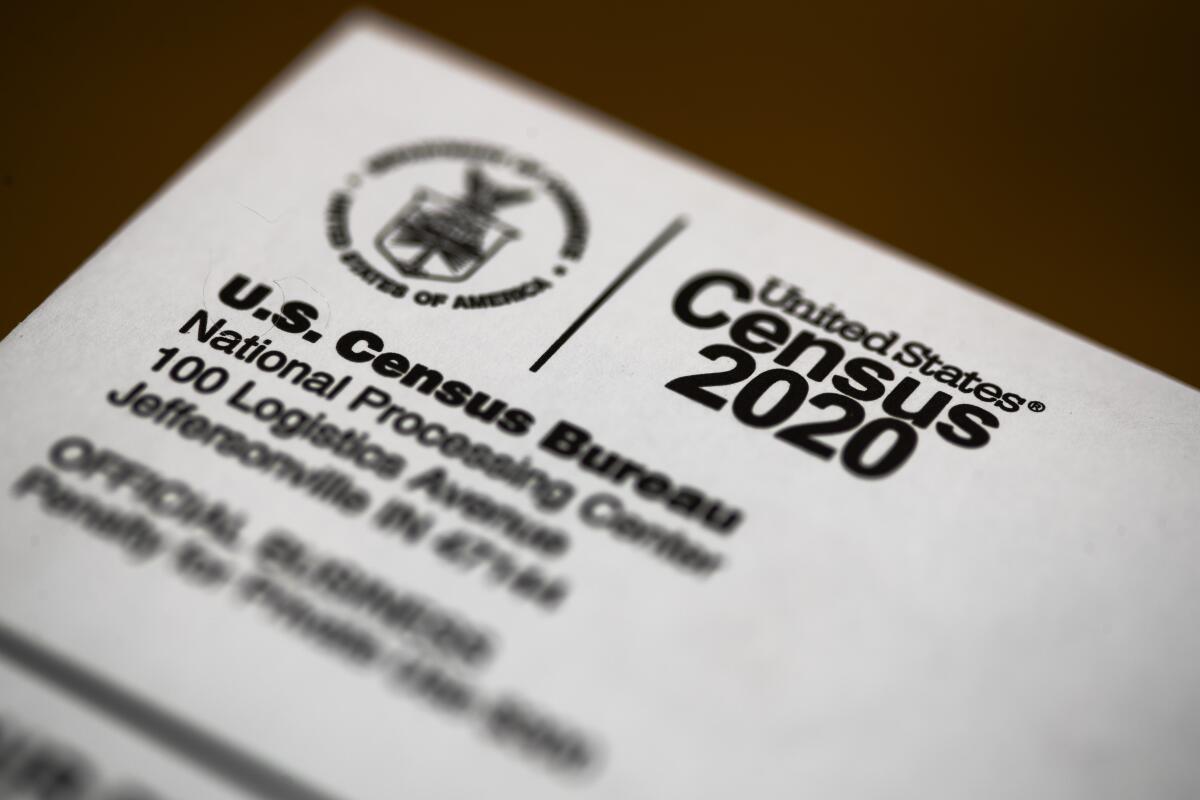Census Bureau denies fake data allegations by census workers

- Share via
The U.S. Census Bureau denied any attempts to systemically falsify information during the 2020 head count used to determine the allocation of congressional seats and federal spending, even as more census takers told the Associated Press they were pressured to do so.
The Census Bureau statement was issued Monday night in response to AP reports of census workers who said they were told by supervisors to enter fake answers on the head-count forms in order to close cases in the waning days of the census.
After the AP reported the allegations in Massachusetts and Indiana, 10 other census takers stepped forward and told similar stories of being rushed to close cases as they faced a shortened deadline to end field operations for the 2020 census — even if it meant getting things wrong.
The workers, in states spanning the country from North Carolina to Washington, told of being instructed to make up answers about households where they were unable to get information, in one instance by looking in the windows of homes and in another by basing a guess on the number of cars in a driveway or bicycles in the yard.
The Trump administration ended the once-a-decade head count on Oct. 15 after the Supreme Court suspended a lower court’s order allowing it to continue through Oct. 31. The Census Bureau is now in the numbers-crunching phase, in which duplicate answers are eliminated, errors are corrected and gaps in information are filled in.
“The Census Bureau takes falsification allegations very seriously,” the bureau said. “Intentional falsification of respondent information by a Census Bureau employee is a serious federal offense, will be fully investigated, and referred for prosecution, if appropriate.”
Under federal law, Census Bureau employees who make false statements can be fined up to $2,000 and imprisoned for up to five years. But census workers are rarely prosecuted for falsification of census responses since the Census Bureau is more concerned with identifying fraud and correcting mistakes than pursuing legal penalties, according to experts.
The bureau also said it has employed new technology and safeguards in the 2020 census to prevent and identify mistakes or the misreporting of data. At the height of the door-knocking phase of the census in mid-August, there were more than 285,000 temporary census takers on the Census Bureau’s payroll.
“Some alleged incidents reported to the media may represent employment-related disputes and/or misunderstandings of operations,” the bureau said.
More to Read
Sign up for Essential California
The most important California stories and recommendations in your inbox every morning.
You may occasionally receive promotional content from the Los Angeles Times.










